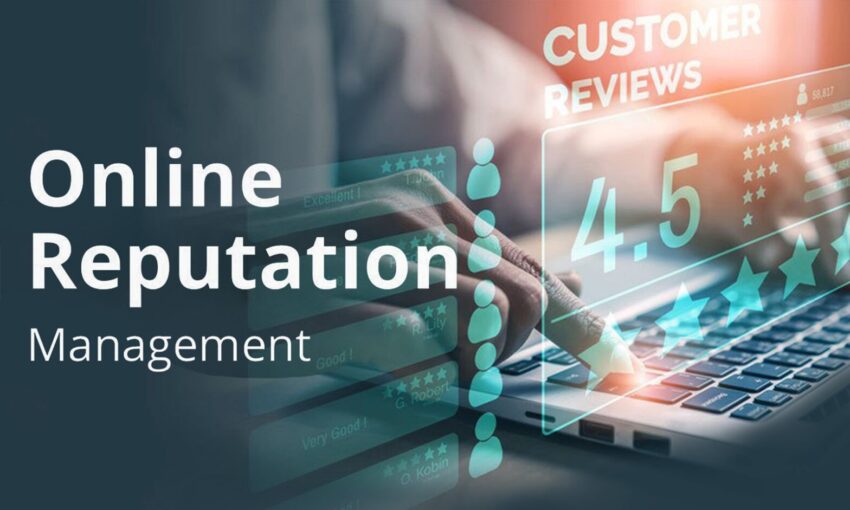In today’s digital era, your online reputation often speaks volumes before you even get a chance to introduce yourself. Whether it’s for personal branding, advancing your career, or growing your business, how you’re perceived online can significantly influence your real-world opportunities.
This guide aims to demystify the process of evaluating and enhancing your online reputation, providing you with actionable insights and steps to ensure that your digital presence authentically reflects who you are or what your business stands for.
What Exactly is Your Online Reputation?
Your online reputation is essentially how you or your business is perceived based on your digital activities. This can include your social media interactions, content on your website, news articles, and more. Understanding that every digital trace contributes to your overall online persona is the first step in reputation management. A positive standing can open doors to new opportunities, while a negative one can hinder your progress.
To begin evaluating your online reputation, start with a thorough audit of your digital presence. Look yourself up on search engines and social media to see what comes up. It’s important to understand not just what information is out there, but also the sentiment behind it. This will help you identify strengths to build on and areas that need improvement.
Strategies for Improving Your Digital Footprint

Improving it starts with enhancing your digital footprint. This means actively managing your social media profiles, updating professional information, and creating content that reflects your values and expertise. It’s also crucial to maintain consistency across platforms to build trust and reinforce your desired image.
Handling negative feedback professionally and constructively is a crucial aspect of online reputation management. Thoughtfully responding to criticism not only demonstrates your commitment to improvement but is also a strategic move in turning a potentially negative situation into a positive outcome within the scope of managing your reputation.
Utilizing Social Media for Positive Impact
Social media is a powerful tool for building and showcasing a positive online reputation. Share content that aligns with your values, engage with your audience meaningfully and highlight positive testimonials or achievements.
However, be aware of the risks, such as oversharing or engaging in controversies, and manage them by being mindful of what you post and maintaining appropriate privacy settings.
Content Creation and SEO ─ Enhancing Visibility
Creating quality content is a key strategy in reputation management. Whether through blogging, videos, or podcasts, share your knowledge and passions to positively shape your digital narrative. Incorporating SEO strategies ensures that this positive content is visible and ranks well on search engines, helping to overshadow any negative mentions.
The Influence of Online Reviews
For businesses, online reviews can significantly impact your reputation. Encourage satisfied customers to share their positive experiences, and address negative reviews promptly and constructively.
This not only improves your reputation but also demonstrates your commitment to customer satisfaction.
Managing Privacy and Personal Data
Controlling your digital footprint isn’t just about managing what you post, but also about protecting your data. Regularly review your privacy settings and be cautious about the information you share online. Protecting your data helps maintain a secure and positive online presence.
The Role of Continuous Monitoring
Continuous monitoring of your online standing allows you to keep abreast of what is being said about you or your business online. This proactive approach enables you to respond swiftly to any negative mentions or feedback and also to capitalize on positive sentiment.
Tools like Google Alerts can be set up to notify you of new mentions, making it easier to stay on top of your online presence. Regularly reviewing your social media analytics can also provide insights into how your content is being received, allowing for adjustments to your strategy as needed.
Engaging with Your Audience

Engagement goes beyond posting on social media; it’s about creating a dialogue. Responding to comments, participating in online discussions related to your field, and even asking for feedback can foster a sense of community and show that you value the opinions of your audience.
This level of engagement not only enhances your online importance but can also provide valuable insights into customer preferences and trends.
The Importance of Authenticity
In all efforts to manage it, authenticity should be at the forefront. People connect with genuine expressions and are more likely to engage with individuals and businesses they perceive as authentic.
Whether it’s through sharing behind-the-scenes content, being transparent about your processes, or admitting to mistakes, authenticity can significantly enhance it.
Leveraging Positive Feedback
While much focus is often placed on managing negative feedback, leveraging positive feedback is equally important. Sharing customer testimonials, highlighting positive reviews, and showcasing achievements can all contribute to a strong and positive reputation.
These elements not only affirm your credibility but also encourage others to share their positive experiences.
Learning from Feedback
Both positive and negative feedback provide growth opportunities. Negative feedback, when addressed constructively, can lead to improvements in products, services, or personal behavior.
Positive feedback can highlight strengths and areas of success that can be built upon. Viewing feedback as a learning tool rather than a critique can transform challenges into opportunities for enhancement.
Future-Proofing Your Online Reputation

As digital platforms and user behaviors evolve, so too should your approach to online reputation management. Keeping abreast of changes in social media algorithms, emerging platforms, and shifts in user engagement can help you adapt your strategy to remain effective.
Additionally, investing in your personal or business brand through continuous learning and development can contribute to a resilient and positive online standing.
Conclusion
Evaluating and enhancing your reputation is an ongoing process that plays a critical role in how you’re perceived in the digital world.
By understanding your current standing, taking proactive steps to improve it, and continuously monitoring and updating your digital presence, you can ensure that your online image is a true reflection of your personal or business identity.
Remember, your online standing is often the first impression you make—make it a positive one.

